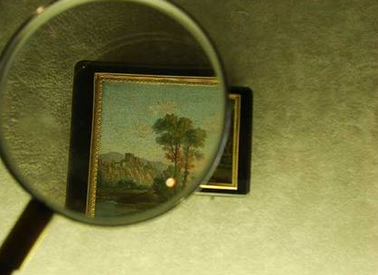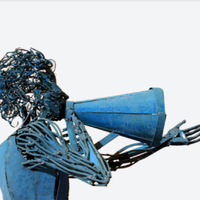2012: key developments in the museum world

The year’s museum news from the perspective of the International Council of Museums and its Director General, Julien Anfruns.
In 2012, several museums opened their doors, either for the first time or following renovation. Highlights included the Department of Islamic Art at the Louvre in Paris and the inauguration of its sister museum, Louvre-Lens as well as the new underground gallery at the Städel Museum in Frankfurt, Germany. In February, the Stedeljik museum in Amsterdam, Netherlands re-opened its doors to the public, as did the Rufino Tamayo Museum in Mexico City and the Museum of Contemporary Art in Sydney, Australia.
Meanwhile, in Niamey, Niger, the new museum of traditional musical instruments highlighted the country’s rich musical heritage, while two new art museums opened in Shanghai, China. Other projects launched were the National Museum of African-American History and Culture in Washington D.C., US and ones to watch in 2013 include the National Museum of Qatar, the Museum of Image and Sound in Rio de Janeiro, Brazil and the re-opening of the Rijksmuseum in Amsterdam.
The year 2012 was also marked by the rapid growth of new media usage in the museum field, brought about both by external players in the culture world (e.g. Google Art Project and its new version launched in April), as well as the museums themselves. Many museums have created impressive virtual galleries, such as the Pompidou Centre in Paris and the National Gallery of Art in Washington D.C. Technology is becoming an increasingly important tool for interpretation, illustrated by the partnership established between the Museum of Contemporary Art in Taipei, Taiwan and ST Microelectronics for an indoor geolocalisation system, while new media is reinforcing museums’ communication strategies on a general basis. In this context, innovation in museums will be honoured during International Museum Day 2013, whose theme is Museums (creativity + memory) = Social Change.
Despite these remarkable initiatives, the severe economic difficulties museums are facing should not be forgotten. Museum closures, both permanent and temporary, exhibition cancellations, and difficulty negotiating funding from authorities are significant and widespread.
"For many museums in the world, these new funding issues question the balance between resources and both public and private partnerships. Hybrid models are emerging and it is likely that the next few years will be ones of trial and error, testing and innovation, with varying degrees of success and varying levels of acceptance, " says Julien Anfruns, ICOM Director General.
ICOM is committed to assisting museums that are faced with situations of armed conflict or natural disasters, and works to raise public awareness on these issues. This year, the organisation’s actions were focused particularly on Syria, where many heritage sites are in danger and for which an Emergency Red List of Cultural Objects at Risk will be launched in 2013, and on Mali, where museums and heritage are also under serious threat.
Throughout the year, the International Council of Museums is available for objective and open comment on the museum world. Through its international network, ICOM can provide key contacts and review events that are impacting museums. ICOM Director General Julien Anfruns can provide in-depth analysis and reflection as well as examples and case studies illustrating current issues.
ICOM in short
Created in 1946, ICOM (International Council of Museums) is an international nongovernmental organisation maintaining formal relations with UNESCO. Within the United Nations, ICOM has a consultative status with the Economic and Social Council. ICOM is the only international organisation representing museums and museum professionals on a global level.
ICOM is:
- A diplomatic forum made up of representatives from 137 countries and territories
- Standards of excellence for museums including ethics (ICOM Code of Ethics for Museums)
- A unique international network of more than 30,000 museum professionals around the world
- A think tank made up of 31 International Committees representing diverse museum specialties
- Missions of international public service, notably in the fight against illicit traffic of cultural property and emergency programmes in the event of natural disasters or armed conflicts.
Similar content
posted on
20 Jun 2013
from - to
08 Dec 2011 - 10 Dec 2011
23 May 2016 - 24 Jun 2016
posted on
28 Jan 2013
deadline
17 May 2019

